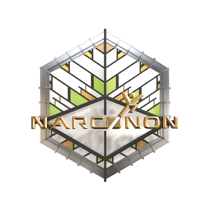Oklahoma Sees Less Prescription Drug Abuse, More Illicit Drug Use
For years, prescription drug abuse has been a major plague affecting Oklahomans across the state, resulting in far too much addiction and numerous overdose deaths. In fact, for several years, Oklahoma was number one for prescription drug abuse. It’s only been the last couple of years that Oklahoma has lost that position to other states. Does that mean there is less of a drug problem? No, it only means that the drug problem in the state has shifted.
Any observer of drug use trends will notice that patterns of drug trafficking and use continually change. Changes in laws, drug enforcement, economics and manufacturing—any of these changes can modify the consumption patterns of those citizens who rely on drugs or alcohol to get through the day. Initially, in Oklahoma, excessive alcohol use was replaced by methamphetamine use then by prescription drug abuse. And now the new drugs seeing growth are heroin and methamphetamine.
Switching From Pills to Heroin: A Common Pattern Across the Country
Why are drug users often switching from pills to heroin? It goes like this: Doctors receive a false education on how harmless and non-addictive opioid (synthetic opiate) medications are and why the drugs should be used freely to relieve pain. Sales of painkillers like oxycodone and hydrocodone begin to rocket up and stay high. Millions of patients are sold these pills. Some become addicted. They need the pills just to feel “normal” and so they start to do whatever it takes to get their hands on the drugs, even if it breaks laws.

Doctors finally become alarmed and stop prescribing the drugs or the pills just become too expensive (heroin is a third the price or less). Mexican cartels obligingly bring in more supplies of heroin to sell to these former prescription drug addicts. Faster, easier methods of distribution to put heroin into the hands of users are developed so they don’t have to drive into sketchy neighborhoods to get their drugs.
And thus you have increasing levels of heroin use in Oklahoma, just as in many Eastern and Midwest states.
Why is Methamphetamine Becoming More Popular Again?
There could be a new reason for the returning popularity of methamphetamine. The federal government encourages the recovery community to treat the painkiller addiction of Oklahomans with a drug called buprenorphine—a painkiller and synthetic opioid. Buprenorphine is itself addictive, and it is paired up with another drug (naloxone) that makes it hard to get high on heroin or painkillers. Some people still try because they still crave the feeling of being high but the naloxone means it doesn’t really work.
So an emerging trend is the abuse of methamphetamine or cocaine by those being prescribed buprenorphine. These patients are being drug-tested regularly to make sure they are not using heroin or painkillers again, but stimulants like methamphetamine or cocaine won’t show up on that test. And because naloxone does not block the effects of a drug like cocaine or methamphetamine, the drug user can feel the euphoric effects.
Drug cartels notice trends like these and shift their production and shipments to take advantages of them. If there’s a demand for more methamphetamine in Oklahoma, the cartels producing these drugs will make sure there is a supply.
Drug-Free Recovery Results in Freedom from Drugs
The real answer to addiction is a drug-free recovery program. There must be an emphasis on learning how to create a new, sober and stable life. Each person must find relief from the guilt and trauma of the past and learn the skills that will enable them to take life’s ups and downs without reaching for drugs.
That has been the function of the Narconon program since it was first delivered in 1966. For fifty years, those completing the Narconon program have learned how to put drugs behind them and, with a fresh, drug-free perspective, build a new future.
Call Narconon Arrowhead today to learn how this alternative to conventional rehab programs can benefit you or someone you care about. Call 1-800-468-6933 today.


